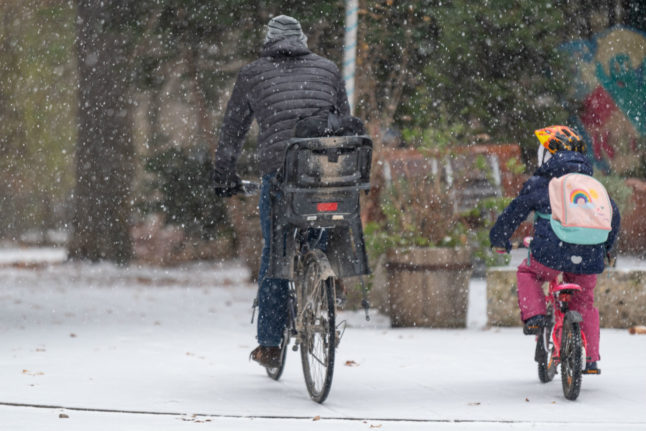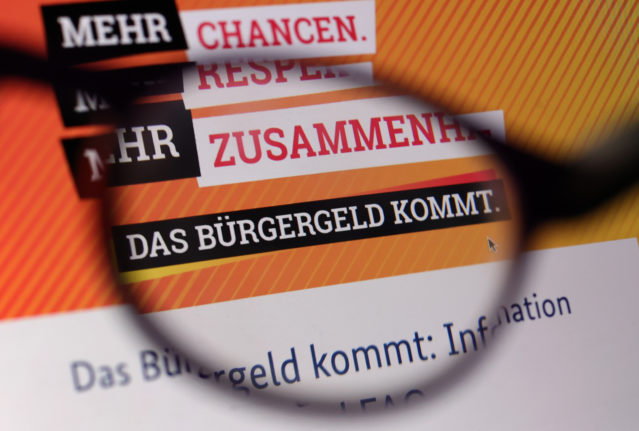First vaccinations to be made available by January
Federal Health Minister Jens Spahn (CDU) is counting on the first round of coronavirus vaccinations being completed in January.
“Our aim is to ensure that the first risk groups and care workers are vaccinated as early as January,” said Spahn on Tuesday on Deutschlandfunk radio.
In doing so, he maintained that old people and people with pre-existing conditions are also among the first to be vaccinated. This was also recommended by the Ethics Council, the National Academy of Science Leopoldina and the Standing Vaccination Committee.
Chancellor Angela Merkel, however, had said in her government statement on Thursday.
“We agreed that these vaccines would then be offered to people working in the medical, nursing and care sector and that they would be the first to have access to them,” Merkel said.
READ ALSO: Analysis: How close is Germany to receiving a Covid-19 vaccine?
Photo of the day

Photo: DPA
Snow fell in many parts of Germany on Tuesday – in some cases causing traffic hazards but in others simply giving way for a winter wonderland, as this photo from the Harz Mountains in Lower Saxony on Tuesday shows.
Tractor protest in Kiel
According to the police, more than 100 farmers with up to 70 tractors blocked access to the Rewe logistics centre in Kiel late Monday evening. The farmers' protest was directed against the pricing policies of the major supermarket chain.
They demanded a greater share of the profits than before, and also more money for their products.
According to the police, the farmers released the blockade at 10:30 pm. There were no major traffic problems and police were on site during the blockade.
Over the past year, several such protests have occurred around Germany, some taking to the streets of big cities en masse and blocking traffic.
READ ALSO: Traffic chaos hits German cities as farmers stage tractor protest
Strict shutdown in Nuremberg
Nuremberg has become the first major city in Bavaria to impose additional strict restrictions during the shutdown in order to curb its sharp rise in coronavirus infections.
The restrictions are to apply with immediate effect and initially until December 20th, said Mayor Marcus König (CSU) on Tuesday. Nuremberg residents are now only allowed to leave their homes for good reason, for example to go to work, to the doctor or to go shopping.
Furthermore, the compulsory wearing of masks and the ban on alcohol in the city centre will be extended.
From December 7th onwards, classes from the fifth grade onwards will be divided and taught in rotation – with the exception of special needs schools, preparatory schools and final classes.
The southern city has reported 1,662 coronavirus cases in the past week, bringing its 7-day incidence rate of cases per 150,000 residents to 320.62. Over 50 qualifies a region as a hotspot.
Man on trial for offering apartment in exchange for sex
A man in Munich went on trial Tuesday for renting out his apartment under one condition: that the female tenant would have sex with him. The tenant, worried about homelessness and addicted to drugs, eventually gave in to the man’s requests.
She is also said to have prostituted herself for the first time, at his insistence, in order to pay the rent.
The 58-year-old on trial is accused of having recognised and deliberately exploited the woman's financial plight, psychological problems and drug addiction.




 Please whitelist us to continue reading.
Please whitelist us to continue reading.
Member comments